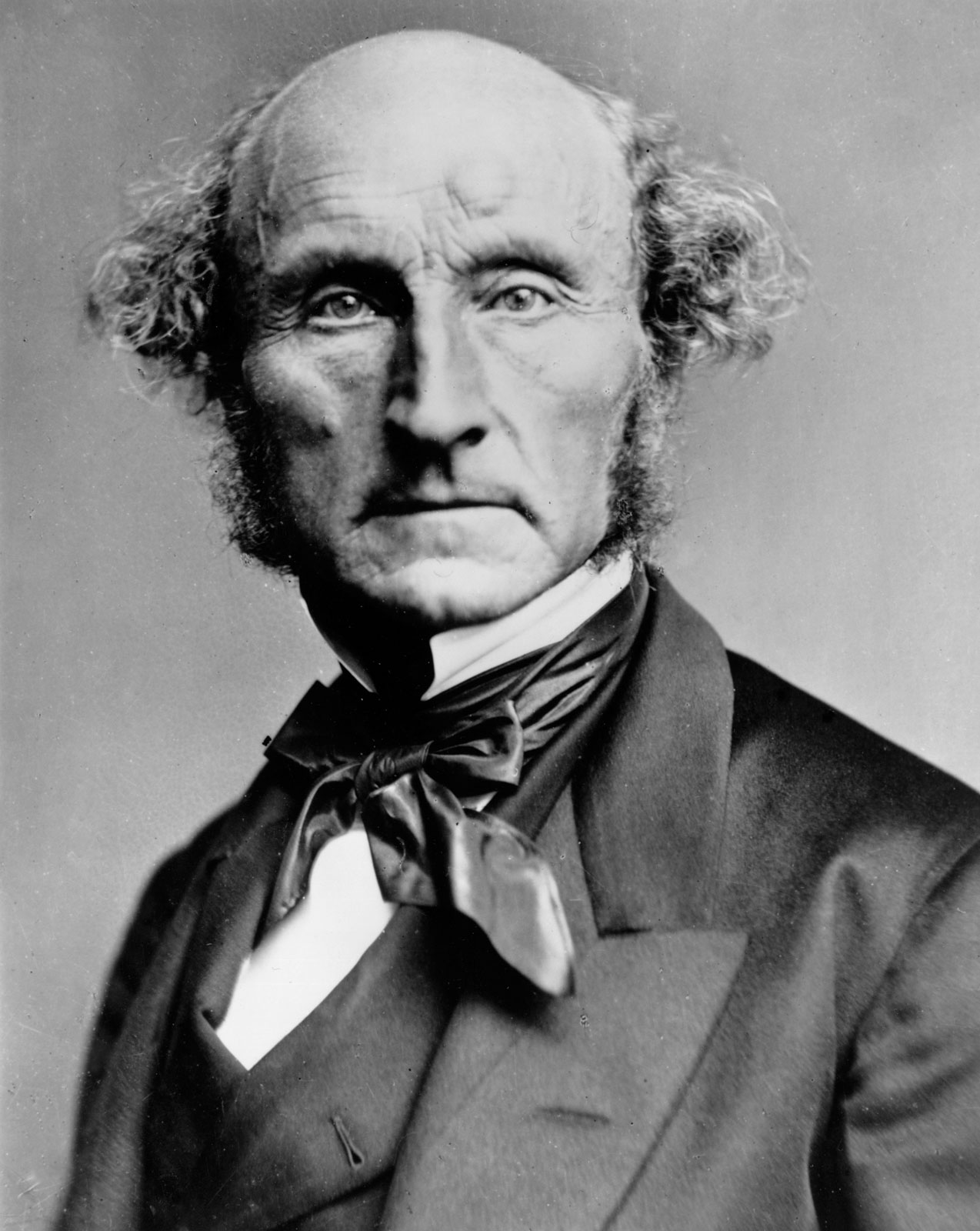Fuente: Sobre la Libertad.
Frases célebres de John Stuart Mill
“El valor de una nación no es otra cosa que el valor de los individuos que la componen.”
Fuente: Paráfrasis de Lógica -A system on Logics-, 1843)
Frases de vida de John Stuart Mill
“Los principales elementos que integran una vida satisfecha son dos: la tranquilidad y el estímulo.”
Fuente: El Utilitarismo, capítulo 2: «¿Qué es el utilitarismo?».
John Stuart Mill Frases y Citas
“No importa si no es más bello o si no conviene, el cambio se hace por el cambio mismo.”
Fuente: Sobre la Libertad.
“Al estudiante que nunca se le pide que haga lo que no puede, nunca hace lo que puede.”
Original: «A pupil from whom nothing is ever demanded which he cannot do never does all he can».
Fuente: Mill, John Stuart. Autobiography. Editorial Simon and Schuster, 2013. ISBN 9781627936248.
Fuente: Childhood and Early Education, capítulo 1.
Fuente: Principios de Economía Política, p. 199.
Fuente: El Utilitarismo, capítulo 2: ¿Qué es el utilitarismo?.
“Todo ser humano debidamente educado siente un sincero interés por el bien público.”
Fuente: El Utilitarismo.
Fuente: Sobre la Libertad.
Principles of Political Economy: And Chapters on Socialism
Fuente: Public and Parliamentary Speeches, 31, May, 1866.
John Stuart Mill: Frases en inglés
Attributed to John Stuart Mill in The Phrenological Journal and Science of Health, Vol. LXXXV (September 1887), p. 170
Disputed
In a Parliamentary debate with the Conservative MP, John Pakington (May 31, 1866). Hansard, vol 183, col 1592. Pakington was referring to Footnote 3 to Chapter 7 of Mill's "Considerations on Representative Government".
Misquoted as "I never meant to say that the Conservatives are generally stupid. I meant to say that stupid people are generally Conservative. I believe that is so obviously and universally admitted a principle that I hardly think any gentleman will deny it." in "Life of John Stuart Mill" (1889) by W. L. Courtney, p. 147.
This seems to have become paraphrased as "Conservatives are not necessarily stupid, but most stupid people are conservatives." which was a variant published in Quotations for Our Time (1978), edited by Laurence J. Peter.
Fuente: On Liberty (1859), Ch. II: Of the Liberty of Thought and Discussion
Fuente: An examination of Sir William Hamilton's philosophy, and of the principal philosophical questions discussed in his writings
Fuente: On Liberty (1859), Ch. II: Of the Liberty of Thought and Discussion
Fuente: On Liberty (1859), Ch. III: Of Individuality, As One of the Elements of Well-Being
“Both teachers and learners go to sleep at their post as soon as there is no enemy in the field.”
Fuente: On Liberty
Fuente: Autobiography (1873)
https://archive.org/details/autobiography01mill/page/43/mode/1up p. 43
Fuente: https://archive.org/details/autobiography01mill/page/138/mode/1up p. 138
Fuente: Autobiography (1873), Ch. 7: General View of the Remainder of My Life (p. 206)
Fuente: Autobiography (1873)
Fuente: https://archive.org/details/autobiography01mill/page/47/mode/1up p. 47
Fuente: Autobiography (1873)
Fuente: https://archive.org/details/autobiography01mill/page/160/mode/1up pp. 160-161
Fuente: Autobiography (1873), Ch. 7: General View of the Remainder of My Life (p. 167)
An Examination of Sir William Hamilton's Philosophy (1865) as quoted in 5th ed. (1878) p. 617. https://books.google.com/books?id=ojQNAQAAMAAJ&pg=PA617
Principles of Political Economy (1848), Book IV, Chapter VI, §2
Dr. Whewell on Moral Philosophy (1852), in Dissertations and Discussions: Political, Philosophical, and Historical, vol. 2, London: John W. Parker and son, 1859, p. 485 https://books.google.it/books?id=w-I3AQAAMAAJ&pg=PA485
Fuente: Autobiography (1873), Ch. 1: Childhood and Early Education
